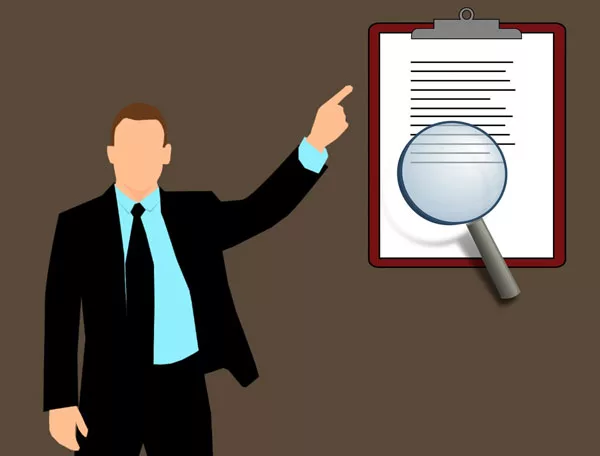Insurance and Risk Management: Navigating the Safety Nets of Retirement
Table of Contents
Introduction
Ah, the joys of retirement! A time to kick back, relax, and… think about insurance? As much as we’d love to spend our golden years just sipping on iced tea and perfecting our golf swing, there’s a practical side to retirement that needs our attention.
And that’s where insurance and risk management come into play. But don’t fret! We’re here to make it as enjoyable as a game of bingo at the community center.
1. Life Insurance: Not Just a Morbid Thought
Life insurance isn’t about planning for the end; it’s about ensuring the story you started continues beautifully for your loved ones.
Whether it’s ensuring your spouse can live comfortably or leaving a legacy for your grandkids, life insurance plays a pivotal role.
And with options like Term and Whole Life Insurance, you can tailor your coverage to your needs. Remember, it’s like a love letter to your family, just with a few more zeros at the end!
2. Health Insurance: Because Age Comes with a Few Aches
Let’s face it, with age comes wisdom, memories, and… a few more visits to the doctor. As our health needs evolve, having the right insurance becomes crucial.
From navigating the maze of Medicare to understanding supplemental plans, health insurance in retirement is about more than just doctor visits.
It’s about ensuring that whether it’s a minor ache or a major procedure, your bank account doesn’t feel the pinch. After all, retirement savings are better spent on cruises than on medical bills!
3. Property Insurance: Protecting Your Nest
Your home isn’t just bricks and mortar; it’s where memories were made, from birthdays to anniversaries. So, ensuring it’s protected is paramount.
Whether you’re a homeowner or a renter, understanding your coverage is crucial.
From natural disasters to that misadventure where the grandkids thought indoor baseball was a good idea, a solid insurance policy ensures your castle remains standing tall.
4. Risk Assessment: The Art of Predicting the Future
No, we’re not asking you to gaze into a crystal ball. Risk assessment is about understanding potential threats to your financial well-being.
It’s about asking questions like, “What if my health deteriorates?” or “What if there’s a natural disaster?” By evaluating these scenarios, you can make informed decisions about your insurance needs.
And while it might not be as fun as predicting your next vacation, it’s certainly as important!
5. Navigating the Digital Age of Insurance
Gone are the days of lengthy meetings with insurance agents and piles of paperwork. Today, technology has made insurance simpler and more accessible.
From comparing quotes online to using apps to file claims, the digital age has revolutionized insurance. And speaking of the digital age, ever thought of sharing your insurance journey on a blog?
With AI tools in 2023, not only can you share insights, but you might also earn a pretty penny!
Conclusion
Navigating the world of insurance and risk management in retirement might seem daunting, but with the right information and a sprinkle of humor, it can be as breezy as a day at the beach.
So, take control, understand your risks, and ensure you’re covered. After all, retirement is about enjoying the present, with an eye on ensuring a secure future. Cheers to safe and sunny days ahead!
Frequently Asked Questions
What’s the difference between term and whole life insurance?
Term life insurance provides coverage for a specific period, like 20 or 30 years. If you outlive the term, it doesn’t pay out.
Whole life insurance, on the other hand, covers you for life and often includes a savings component. Think of term as renting and whole life as buying!
I’ve heard of universal life insurance. How does that fit in?
Universal life is a type of permanent insurance, like whole life. However, it offers more flexibility in premiums and benefits.
Plus, it can have an investment component. It’s like the Swiss army knife of life insurance!
Can I rely solely on Medicare for health insurance during retirement?
While Medicare can cover a significant portion of health costs, it doesn’t cover everything. That’s where supplemental plans or “Medigap” come in. They can help cover out-of-pocket costs that Medicare doesn’t.
How does homeowners’ insurance differ from renters’ insurance?
Homeowners’ insurance covers both the structure of your home and its contents. Renters’ insurance, on the other hand, typically covers only the contents of your rental property.
Think of it as the difference between covering the whole pizza vs. just the toppings!
What is an insurance deductible?
It’s the amount you pay out of pocket before your insurance kicks in. If you have a $500 deductible and $2000 in repairs, you pay the first $500, and your insurance covers the rest.
How can I assess the risks I might face in retirement?
Start by listing potential events, like health issues or property damages.
Then, consider their likelihood and potential costs. Consulting with a financial planner or insurance agent can also provide insights tailored to your situation.
Are there any insurance policies specifically designed for retirees?
Yes! Some policies cater to retirees, offering features like reduced rates, or coverage tailored to common retiree concerns like long-term care.
How do annuities fit into the retirement insurance picture?
Annuities are like insurance for your income. You pay a lump sum or series of payments, and in return, you get regular disbursements, either immediately or in the future.
They can provide a steady income stream in retirement.
Can I adjust my insurance coverage as my needs change in retirement?
Absolutely! It’s essential to review and adjust your coverage periodically, especially as your needs and circumstances evolve.
After all, retirement is a journey, and your insurance should adapt to the road ahead!
With advancements in AI, can I trust robo-advisors for insurance and risk management advice?
Robo-advisors can provide valuable insights based on algorithms, but they might not capture the nuances of individual situations.
It’s always good to complement digital advice with human expertise. Plus, AI is fantastic, but it still can’t appreciate your sense of humor!
Is life insurance necessary if my kids are grown up?
It’s a personal choice. While your kids might be independent, life insurance can cover debts, funeral costs, or even act as an inheritance.
How can I lower my health insurance premiums in retirement?
Shopping around, considering higher deductibles, and looking into health savings accounts can help. Also, staying healthy isn’t just good for you, but your premiums too!
Does property insurance cover natural disasters?
It varies. Some policies might cover events like hurricanes, but others might require an additional rider for floods. Always read the fine print!
How often should I review my insurance needs?
As often as you review those vacation photos! Ideally, every couple of years or after significant life changes.








